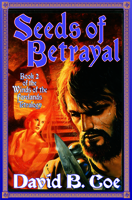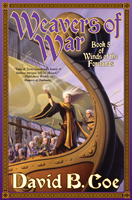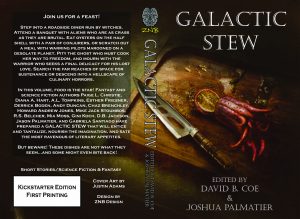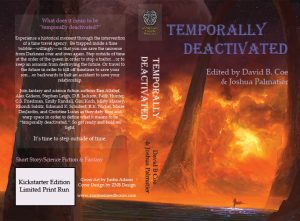As part of my new Professional Wednesday format, I intend to tie advice posts to issues I am encountering “in the moment” with my own work. And so, today, I share with you a few insights that grew out of an editorial note I received from the marvelous Debra Dixon on the supernatural thriller I’ve recently sold to Belle Books.
Writers, myself included, sometimes “make” things happen to our characters, either for good or for bad, that are essential for our storylines, but not necessarily convincing in the natural flow of events. Put another way, sometimes we contrive things to happen because we need them to happen. This is one of those writing pitfalls that brings to mind the old Tom Clancy quote: “The difference between fiction and reality? Fiction has to make sense.”
Real life is filled with coincidences, with random occurrences the timing of which could not be better (or worse), with odd little quirks that make us stop to take note of how strange/funny/ fortunate/terrible (pick one or more) the world can be.
But when we put such things into our books or short fiction, they seem to lack authenticity. “That’s too convenient.” “No one will believe this.” “This feels contrived.”
In my thriller, I had my two young protagonists, having just been separated from their mother, taken in by a couple who wind up helping them at potentially great cost to themselves. The circumstances of their encounter with this couple made perfect sense. But as Debra pointed out, the mere fact that the couple were willing to help, despite the danger — well, that strained credulity just a bit. Not a lot. I was almost there. But the couple’s backstory needed… something to make their choice more understandable.
First of all, this is a GREAT editorial note. This is just the sort of thing a developmental editor is supposed to notice and bring to a writer’s attention. As a writer, the note is both helpful and, yes, a little frustrating. I had worked hard to make the interactions believable, and, as Debra said, I almost succeeded. That I hadn’t meant more work, and changes that might upset the flow of the book. That, at least, was my initial reaction. Something along the lines of, “Well, crap. She’s right.”
As it turned out, the fix I came up with, far from upsetting the flow, deepened the story and the interactions between my protags and these two people they meet in the midst of their adventure. The backstory of the couple feels richer now. There is a poignancy to the entire encounter that makes everything around it better. As you’ve probably sussed out by now, I’m not going to tell you what I did. You’ll have to read the book when it comes out.
But I can tell you HOW I did it, and I can share with you a few lessons I draw from making these revisions.
First the “how.” I needed to build into the couple’s backstory a trauma that was somewhat related to what my heroes were experiencing, but not so similar as to raise new believability flags. That was fairly easy — the lives of my heroes are quite different from those of this couple. By the same token, though, all of them are human. They love and feel, they experience loss and tragedy and injustice. There were actually several directions I could have gone, and I chose one that was neither the most obvious nor the most complicated. Which, I suppose is a lesson in and of itself: When developing backstory, particularly for secondary characters, strive for the somewhat unexpected, but keep things simple.
Once I had decided on an approach, I didn’t simply blurt it out. I meted out the information in dribs and drabs throughout the pages that followed. The couple are “on stage” for only two or three chapters total, but that gave me plenty of time to build in the information. I hinted at it early and had one of the characters make a cryptic reference that put the history at the heart of their decision even before I explained that history fully to my reader. Finally, when the emotional payoff seemed likely to be greatest, I wrote my reveal, working the information into an exchange that served as the final button to a key scene. So that would be lesson number two: Give out information to your readers on a need-to-know basis. Don’t resort to data dumps, and don’t feel that your reader has to know every detail up front. Sometimes a slow reveal can be far more satisfying to the reader than having all that knowledge from the start.
As I said, this was a great editorial note, and like all great bits of editorial feedback, it improved my novel. It forced me to rethink an essential narrative element, and in doing so it strengthened my plot AND my character work. Which makes lessons three, four, and five really easy: Trust your editor. Be open to constructive criticism. And look at the editorial/revision process not as a burden, but as an opportunity to make the story you love even better than it already is. As I’ve written before, edits are part of the business. Accepting feedback is part of being a professional.
So in the end, I wound up with a better book, a more powerful way of getting my protagonists the help they needed, and, most important, a deepened appreciation of and trust in my new editor. I also reminded myself that at times withholding information from my reader, at least in the short term, can heighten the impact of the revelation when it finally comes.
I hope you found this helpful.
Keep writing!










 For the Winds of the Forelands series (Rules of Ascension, Seeds of Betrayal, Bonds of Vengeance, Shapers of Darkness, Weavers of War) , I created what is without a doubt the most complex “calendar” I’ve ever undertaken for any project. For those of you not familiar with the world, I’ll give a very brief description. The world has two moons, Ilias and Panya, the Lovers, who chase each other across the sky. Each turn (month) has one night when both moons are full (the Night of Two Moons) and one night when both moons are dark (Pitch Night). Each turn is also named for a god or goddess, and so each Night of Two Moons and each Pitch Night has a special meaning.
For the Winds of the Forelands series (Rules of Ascension, Seeds of Betrayal, Bonds of Vengeance, Shapers of Darkness, Weavers of War) , I created what is without a doubt the most complex “calendar” I’ve ever undertaken for any project. For those of you not familiar with the world, I’ll give a very brief description. The world has two moons, Ilias and Panya, the Lovers, who chase each other across the sky. Each turn (month) has one night when both moons are full (the Night of Two Moons) and one night when both moons are dark (Pitch Night). Each turn is also named for a god or goddess, and so each Night of Two Moons and each Pitch Night has a special meaning. I did something similar for the Islevale Cycle novels (Time’s Children, Time’s Demon, Time’s Assassin). In this world there are two primary deities, Kheraya (female) and Sipar (male), and the calendar is structured around them. It begins with the spring equinox — Kheraya’s Emergence, a day and night of enhanced magickal power and sensuality. The spring months are known as Kheraya’s Stirring, Kheraya’s Waking, Kheraya’s Ascent. The summer solstice is called Kheraya Ascendent, a day of feasts, celebration, and gift-giving. This is followed by the hot months of summer: Kheraya’s Descent, Fading, and Settling.
I did something similar for the Islevale Cycle novels (Time’s Children, Time’s Demon, Time’s Assassin). In this world there are two primary deities, Kheraya (female) and Sipar (male), and the calendar is structured around them. It begins with the spring equinox — Kheraya’s Emergence, a day and night of enhanced magickal power and sensuality. The spring months are known as Kheraya’s Stirring, Kheraya’s Waking, Kheraya’s Ascent. The summer solstice is called Kheraya Ascendent, a day of feasts, celebration, and gift-giving. This is followed by the hot months of summer: Kheraya’s Descent, Fading, and Settling. And I’ll start with this: Joshua and I are generous readers. We will read an entire story, even when it’s pretty clear halfway in (or a quarter in…) that the story probably won’t make the cut. Your goal as a writer is to sell us a story, obviously. But really your goal is to make us consider your story on your terms. Here’s what I mean by that: We are expecting to get somewhere between 300 and 400 submissions, for a total of 6 or 7 slots. (Last year, for GALACTIC STEW, we received 409 and selected 7.) Read those sentences again; I’ll wait.
And I’ll start with this: Joshua and I are generous readers. We will read an entire story, even when it’s pretty clear halfway in (or a quarter in…) that the story probably won’t make the cut. Your goal as a writer is to sell us a story, obviously. But really your goal is to make us consider your story on your terms. Here’s what I mean by that: We are expecting to get somewhere between 300 and 400 submissions, for a total of 6 or 7 slots. (Last year, for GALACTIC STEW, we received 409 and selected 7.) Read those sentences again; I’ll wait. I have touched on the subject of creative ideas in other Writing-Tip Wednesday posts this year (
I have touched on the subject of creative ideas in other Writing-Tip Wednesday posts this year (